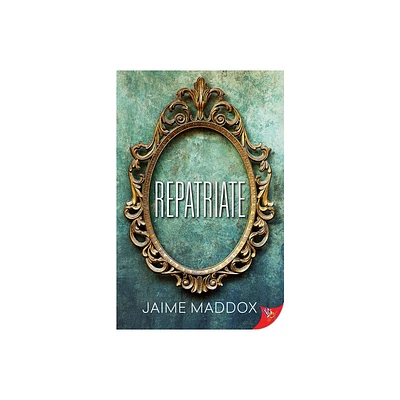Home
The Repatriate: Love, Basketball, and the KGB
Loading Inventory...
Barnes and Noble
The Repatriate: Love, Basketball, and the KGB
Current price: $19.95


Barnes and Noble
The Repatriate: Love, Basketball, and the KGB
Current price: $19.95
Loading Inventory...
Size: OS
*Product Information may vary - to confirm product availability, pricing, and additional information please contact Barnes and Noble
The Repatriate was awarded first place in the Memoir category at the Hollywood Book Festival (2017); and second place in both the Reader's Views Literary Awards (2017), and the San Francisco Book Festival (2017). In addition, it received high rankings in the Royal Dragonfly Book Awards (2017), Kindle Book Awards (2017), the Indie Book Awards, (2018), and the Eric Hoffer Book Awards (2020).
In the early months of 1947, eighteen-year-old Tom Mooradian had everything - Hollywood good looks, high academic ranking in his senior class at Southwestern High School, and recognition by the three Detroit daily newspapers as being one of the finest basketball talents in the Public School League and in the state. Before the end of that year, however, he would find himself with hundreds of other Soviet citizens, standing in long unruly lines hoping to purchase a kilo of black, damp, saw-grain filled bread. He would be fighting the daily fight for survival in the Soviet Union.
But bread was the least of his worries; he was not allowed to travel or utter one word against the state in public or private conversation. Mooradian had lost his freedom. It was not a dream, but a nightmare, that he and one-hundred-fifty other American Armenians willingly, but unknowingly, walked into when they signed up to repatriate to Armenia. Shortly after their arrival in Erevan, the capital of Soviet Armenia, the NKVD, the Soviet Secret Police, arrested Mooradian as he boarded a plane for Moscow. Beaten at the airport, Mooradian was conveyed to NKVD headquarters. His crime: he had authored and agreed to present a petition that he and three other repatriates had signed to the US Ambassador, pleading for help to return to the United States.
Mooradian's basketball prowess captured the hearts of the Soviet people and probably saved his life. Miraculously surviving 13 years behind the Iron Curtain, he had the opportunity to see what no foreign correspondent, no western journalist, no diplomat was permitted to see: the Soviet Union as the Soviets lived.
In the early months of 1947, eighteen-year-old Tom Mooradian had everything - Hollywood good looks, high academic ranking in his senior class at Southwestern High School, and recognition by the three Detroit daily newspapers as being one of the finest basketball talents in the Public School League and in the state. Before the end of that year, however, he would find himself with hundreds of other Soviet citizens, standing in long unruly lines hoping to purchase a kilo of black, damp, saw-grain filled bread. He would be fighting the daily fight for survival in the Soviet Union.
But bread was the least of his worries; he was not allowed to travel or utter one word against the state in public or private conversation. Mooradian had lost his freedom. It was not a dream, but a nightmare, that he and one-hundred-fifty other American Armenians willingly, but unknowingly, walked into when they signed up to repatriate to Armenia. Shortly after their arrival in Erevan, the capital of Soviet Armenia, the NKVD, the Soviet Secret Police, arrested Mooradian as he boarded a plane for Moscow. Beaten at the airport, Mooradian was conveyed to NKVD headquarters. His crime: he had authored and agreed to present a petition that he and three other repatriates had signed to the US Ambassador, pleading for help to return to the United States.
Mooradian's basketball prowess captured the hearts of the Soviet people and probably saved his life. Miraculously surviving 13 years behind the Iron Curtain, he had the opportunity to see what no foreign correspondent, no western journalist, no diplomat was permitted to see: the Soviet Union as the Soviets lived.


















